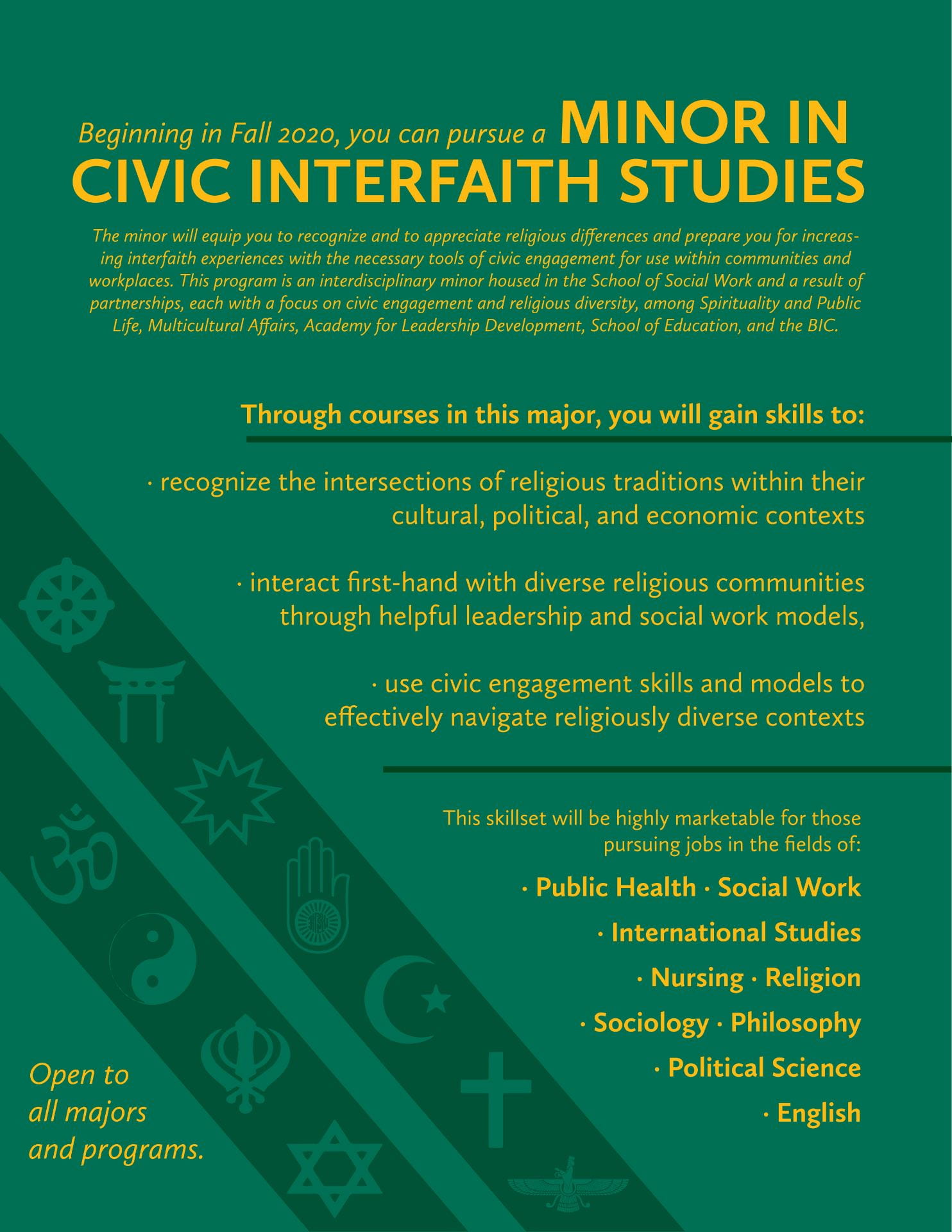We have just enough religion to make us hate, but not enough religion to make us love one another. — Jonathan Edwards
The Civic Interfaith Studies Minor course sequence is a collaborative effort among Spirituality and Public Life, the Leadership Academy, the Baylor Interdisciplinary Core (BIC), the Diana R. Garland School of Social Work, Department of Multicultural Affairs, and the School of Education.
Civic Interfaith Studies at Baylor is intended to address the significant role religious identity plays within a 21st Century global society. That is, in response to the secularization theory, these courses assume that religious identity is actually a significant piece of one’s cultural identity.
How can we fully understand a philosophy, a piece of literature or music, or a work of art if we do not know the religious identities that formed them? How can we truly understand the speeches and policy decisions of significant public figures and leaders if we do not know the religious motivations for their words and actions?
Indeed, most public decisions, civic and political, are premised upon religious values; yet, most citizens struggle with a basic understanding of religion in general and differing religious perspectives in particular. This religious illiteracy results in an inability to speak reasonably or to hold meaningful conversations about various difficult topics, e.g., global warming, abortion, animal rights, foreign policy, food insecurity, socio-economic inequality, racism, domestic terrorism.
These courses are offered to any Baylor student – regardless of religious or non-religious affiliation – who wants to learn more about civic, intercultural, and interfaith literacy and leadership. For more information, ask your advisor!
Good Neighbors Live Here

